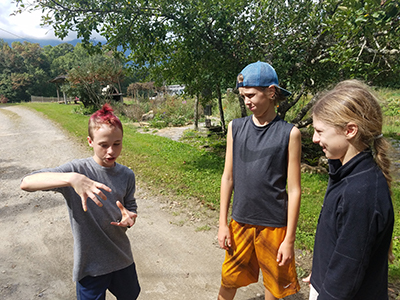Teaching Consent to Middle Schoolers

Middle schoolers today live in a very confusing time. The me too. movement is about to celebrate the one year mark since it went viral. The Ford-Kavanaugh sexual assault hearings are bringing sexual abuse center stage. All the while, the media continues to bombard teenagers with images of women being off-handedly objectified and marginalized by society. Now more than ever, parents and teachers feel the pressure to talk to their middle schoolers about sex and more importantly, consent.
Starting Early
For most middle schooler, the first time they talk about sex is an awkward conversation with their parents or in health class. These lessons are usually limited to how puberty is going to affect their bodies and emotions. Parents often put off discussing consent until high school or even college when their student is actually experimenting.
 By that time though, its already too late. Teenagers ingest about nine hours of media a day. Couple that with the systemic sexism obvious in our culture and many middle schoolers establish thought patterns and norms long before they are actually ready to do anything. By talking to middle schoolers about consent early on, parents and teachers can promote positive behavior before their children experience a harmful interaction.
By that time though, its already too late. Teenagers ingest about nine hours of media a day. Couple that with the systemic sexism obvious in our culture and many middle schoolers establish thought patterns and norms long before they are actually ready to do anything. By talking to middle schoolers about consent early on, parents and teachers can promote positive behavior before their children experience a harmful interaction.
Supportive Structures
Rewiring our culture’s harmful sexual messages is a big task, probably too big for any one parent or teacher. It is important to have support structures that teach and promote consensual interactions. At Arthur Morgan School teachers support students in their development of consent culture. The middle school offers several structures that support conscious and beneficial growth.
- Personal Growth Class: More than a traditional health class, Personal Growth takes on a plethora of topics from gender identity to establishing positive body image to establishing consent. The class can dig deep, drawing attention to the prevalence of sexual assault on women and the ways in which our culture puts the burden of protection on women. The class allows students to take on the topic of sex in a group of their peers and ask questions in an informative and safe setting.
- No Body Talk: In their student contract, AMS students agreed to refrain from any body talk, positive or negative, about themselves or anyone else. This rule allows all students to feel safe in a community that values their actions more than their appearance.
Listening as well as Teaching
AMS not only offers mentoring, but also listens to its students. At age 12, many middle schoolers have already experienced or even participated in sexism. In some cases, they have even experienced harmful interactions. By listening to students, AMS creates a safe space for middle schoolers to question their experiences and develop a deeper understanding of their needs and boundaries.
- Advisor Advisee: Students meet weekly with another student and staff member to talk about their feelings and struggles. Advising groups stay the same all year long making it the perfect place to examine their peer interactions and talk about things they might otherwise be too embarrassed to bring up.
- Low staff to student ratio: A smaller school community enables AMS staff to build real relationships with their students. As a result, they know what is going on in their students’ homes and in their friendships with their peers. If something comes up, the staff are able to support students through any difficult interaction.
 Establishing Safe Spaces
Establishing Safe Spaces
Recently filmmaker and sexual abuse survivor, Jennifer Fox, was interviewed on NPR’s Fresh Air for her film The Tale. In the interview, Fox talks about that even though she wrote fairly openly about the abuse to her teachers, it went unacknowledged. Fox attributes that lack of intervention because of a culture that talked over kids instead of talking to them, “…in 1973, in my family, children will be seen and not heard. People didn’t talk to kids back then in the same way they do now. It was all vertical. It was all the adults talking down. And so if you are not having a horizontal conversation, how can you really investigate what’s really going on?”
Today, the culture is shifting, but it is still important for teachers and parents to create a space for middle schoolers to be heard and learn about consent. They need to tell their stories, check their experiences, ask questions and get solid advice. AMS’s structures help establish a safe and positive space for middle schoolers to grow and experiment with their own boundaries. They learn to understand what makes them feel comfortable and how to communicate their feelings directly. Thankfully, AMS isn’t the only place. Lots of schools are adopting similar policies and structures to help middle schoolers learn about consent and how to use it. As they continue to do so, we will hopefully eliminate the need for the me too. movement in the future.
-by Nicholas Maldonado
